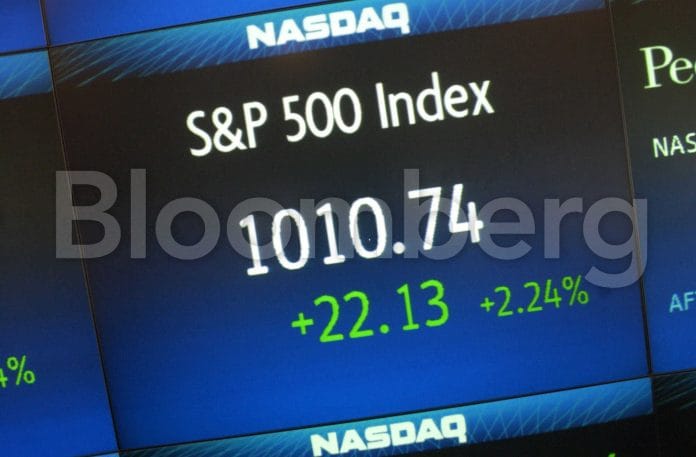It is highly likely that investors have realised the US market has become very expensive. And, the cash yield offered by S&P 500 companies can no longer keep pace with rising interest rates.
A popular trade that worked for years is losing its shine.
US multinationals – the missionaries of globalization that sell toothpaste, fast food and smartphones to consumers from China to India – have been investor darlings since the 2013 taper tantrum. Buying large diversified companies offered a smart way to gain exposure to these fast-growing young markets, removing the need to worry about corporate governance or violent movements in local currencies.
This year, the missionaries have fallen out of favor. Emerging-markets firms outperformed instead.
To illustrate the trend, I created a portfolio comprising the top 10 percent of major US companies ranked by proportion of revenue drawn from overseas. They were given equal weight and the list was rebalanced every month. The portfolio contained consumer discretionary names such as Yum! Brands Inc. and Las Vegas Sands Corp., to technology firms such as Apple Inc. and Qualcomm Inc.
The missionary position yielded great riches. Between 2013 and 2017, investors who bought into the portfolio would have made an excess return of 100 percent over the benchmark MSCI Emerging Markets Index.
So popular was this concept that investors were even willing to overlook earnings misses. Yum, which generated more than half its revenue in China, saw poor same-store sales there from 2014 to 2016, but that didn’t stop its shares from rising 25 percent over the period.
It’s possible President Donald Trump’s trade rhetoric is denting sentiment. For instance, Qualcomm, which got 65 percent of its sales in China last year, may suffer Beijing’s ire after the US blocked Broadcom Ltd.’s takeover of the San Diego-based chipmaker. The Trump Administration cited concern that the deal would allow China’s Huawei Technologies Co. to become the dominant supplier of next-general wireless technology.
Equally likely is that investors have realized the US market has become very expensive. The cash yield offered by S&P 500 companies can no longer keep pace with rising interest rates. If investors want to take equity risk, buying the shares of developing-nation firms directly offers a cheaper way.
More importantly, the world is gradually coming to realize that emerging-market companies are often more nimble and faster-growing than their Western counterparts.
There are many examples. Uber Technologies Inc., to take one, is in full retreat in Asia, having ceded China to its clone Xiaoju Kuaizhi Inc., better known as Didi Chuxing, and sold a large chunk of its Southeast Asian operations to Grab. It’s just a matter of time before the US ride-hailing company leaves India, too. Didi may go public as early as this year, while Uber is delaying its listing to 2019.
In India, the revival of Ayurveda traditional medicine is eating into revenue for Colgate-Palmolive Co. and Unilever NV. Patanjali Ayurved Ltd., founded by yogi Baba Ramdev just over a decade ago, generated $1 billion in sales last fiscal year, surpassing Colgate-Palmolive’s local unit. The company offers herb-based consumer staples such as dental cream containing neem and turmeric, and body cleanser with mint and tulsi.
As the 19th century missionaries found, the natives may flirt with exotic foreign ideas for a while, but the old ways reassert their appeal eventually. It may be time to buy local. – Bloomberg






